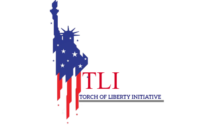In a remarkable tale of determination and compassion, a Canadian family dedicated themselves to finding a cure for their newborn son’s rare disease. Terry and Georgia Pirovolakis, residents of Toronto, embarked on a journey to save their son and also help other children suffering from the same condition.
In 2017, they welcomed their third child, Michael, who initially appeared healthy. However, as time passed, the couple noticed concerning developmental delays. After an exhaustive 18-month search for answers, Michael was diagnosed with spastic paraplegia 50 (SPG50), a rare neurological disorder affecting fewer than 100 individuals globally. The prognosis was grim: doctors advised the Pirovolakis family that Michael would likely be wheelchair-bound by age 10 and quadriplegic by 20.
Dr. Eve Elizabeth Penney, an epidemiologist, explained that children with SPG50 face serious challenges but can adapt and strive despite early developmental setbacks. With no effective treatments available through the FDA, Terry refused to accept this fate for his son. He traveled to Washington D.C. for a gene therapy conference and sought out researchers at the National Institutes of Health in the UK who were studying SPG50.
Determined to change Michael’s future, Terry and Georgia liquidated their life savings, refinanced their home, and financed a team at the University of Texas Southwestern Medical Center to develop a proof of concept for Michael’s gene therapy. Their efforts bore fruit when they discovered that the treatment halted disease progression in laboratory settings.
Their journey continued as they collaborated with a pharmaceutical company in Spain to produce doses of the gene therapy drug. In March 2022, Michael became the first person in the world with SPG50 to receive this groundbreaking treatment through a lumbar puncture.
The results were promising; as weeks passed, Michael showed improvements in movement, coordination, and speech. His doctors confirmed that the treatment was effective. However, instead of keeping the remaining doses for themselves, Terry and Georgia chose to share them with other children diagnosed with SPG50.
Motivated by the plight of other families facing similar challenges, Terry initiated a phase 2 clinical trial that treated three additional children with SPG50. One of these children was six-month-old Jack Lockard, whose mother reported significant progress following treatment.
Despite his success as an IT manager, Terry recognized the financial burden of developing treatments for rare diseases like SPG50—each dose costing around $1 million. After realizing that pharmaceutical companies were uninterested due to limited market potential, he left his job to establish Elpida Therapeutics (meaning “Hope” in Greek). His team is working towards a phase 3 trial set to begin at the NIH.
Terry hopes that philanthropic support will emerge to finance this crucial trial. His relentless pursuit has already transformed lives and holds promise for many more children facing rare diseases like SPG50.

